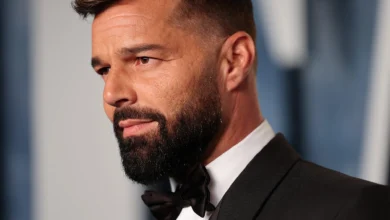
Introduction: The Man Who Made History
When you hear the name Barack Obama, you immediately think of a calm, Barack Obama charismatic leader who brought a wave of hope to millions—not just in the United States, but around the world. Born to a Kenyan father and an American mother, Obama’s rise to the presidency shattered centuries-old racial barriers and reshaped what was politically possible in America.
But Obama’s story is more than just a “first” in the history books. Barack Obama He’s a man whose intelligence, eloquence, and resilience carried him from a modest upbringing to the highest office in the land. And while his presidency wasn’t without its critics, the impact of his time in office continues to ripple through political and cultural landscapes to this day.
What made Barack Obama so unique wasn’t just his historic win in 2008—it was his ability to inspire people across race, class, and nationality. His story is one of resilience, Barack Obama idealism, and the tough compromises that come with leadership in a divided world.
Early Life and Education: Roots of a Leader

Barack Hussein Barack Obama II was born on August 4, 1961, in Honolulu, Hawaii. Growing up in a multicultural household, Obama’s early life wasn’t exactly traditional by American standards. Barack Obama His father was from Kenya, his mother from Kansas, and his stepfather was Indonesian. These global influences helped shape Obama’s worldview from a young age.
He spent a few of his formative years in Indonesia, where he got a first-hand look at poverty and inequality. This early exposure planted the seeds of social justice and public service that would later define his political career. Returning to Hawaii, Barack Obama Obama attended the prestigious Punahou School on a scholarship, where he began to develop his love for reading, writing, and debate.
Obama went on to attend Occidental College in Los Angeles before transferring to Columbia University in New York City. There, he majored in political science with a specialization in international relations. But it wasn’t until he moved to Chicago and worked as a community organizer that his purpose truly started to take shape. That experience—helping low-income neighborhoods navigate unemployment, crime, and housing issues—was his first real taste of leadership and public service.
The Road to Politics: From Organizer to Senator
Before stepping into the national spotlight, Obama’s political journey began at the grassroots level. After earning his law degree from Harvard (where he became the first Black president of the Harvard Law Review), he returned to Chicago with a mission to make change from the inside. His blend of legal expertise and social passion made him a standout voice in local politics.
He entered the Illinois State Senate in 1997, representing the 13th district on the South Side of Chicago. There, he worked on legislation surrounding ethics reform, health care access, and early education. Even his critics admitted he had a knack for bringing opposing sides to the table—something that would later become a signature strength of his presidency.
But Obama didn’t really explode onto the national scene until his famous keynote speech at the 2004 Democratic National Convention. With lines like, “There is not a liberal America and a conservative America—there is the United States of America,” Obama struck a chord. His message of unity and hope instantly made him a rising star. That same year, he won a seat in the U.S. Senate with a landslide victory.
The Presidency: Hope, Change, and the Weight of Reality
Obama’s 2008 presidential campaign was a cultural earthquake. With slogans like “Yes We Can” and “Hope and Change,” he energized young voters, minorities, and disillusioned Americans alike. His campaign used social media like no candidate ever had, turning online platforms into powerful political tools. He wasn’t just a politician—he was a movement.
When Obama took office in January 2009, the country was in crisis. The global financial system was collapsing, unemployment was soaring, and two wars raged on in Iraq and Afghanistan. His first major act was the American Recovery and Reinvestment Act, a stimulus package aimed at pulling the U.S. out of recession. It wasn’t perfect, but many economists agree it helped avoid a full-blown depression.
Perhaps Obama’s most defining legislative achievement was the Affordable Care Act (ACA), often referred to as “Obamacare.” It aimed to make health insurance more accessible and affordable, especially for low-income Americans. The bill faced massive opposition, but Obama pushed it through—changing the healthcare landscape forever.
Yet, not all was smooth sailing. His presidency was frequently obstructed by partisan gridlock, particularly after Republicans gained control of Congress in 2010. Gun control, immigration reform, and climate change legislation all hit brick walls. For a leader whose brand was built on unity, navigating this deeply divided political terrain was frustrating—and often heartbreaking.
Foreign Policy: Diplomacy, Drones, and Decisions
On the global stage, Obama’s approach was defined by diplomacy, restraint, and an attempt to reset America’s image abroad. He ended the combat mission in Iraq, reduced the military presence in Afghanistan, and focused more on intelligence-led operations against terrorism. The killing of Osama bin Laden in 2011 was a major victory, boosting his approval ratings and showcasing his quiet but calculated leadership style.
However, his foreign policy wasn’t without criticism. His increased use of drone strikes in the Middle East raised ethical questions, especially concerning civilian casualties. His cautious stance during the Syrian civil war and the handling of the Libya intervention were also contentious, leading some to label his strategy as too passive.
That said, his achievements—like the Iran Nuclear Deal and the re-establishment of diplomatic ties with Cuba—were seen as bold steps toward long-term peace. He wasn’t trying to be a global policeman, but a global diplomat. Whether that approach worked is still debated, but his intentions were clear: America should lead, but not dominate.
Post-Presidency: Still a Voice for Change
After leaving the White House in January 2017, Obama didn’t just disappear into private life. He’s remained one of the most influential voices in global politics, using his platform to promote civic engagement, climate action, and leadership development.
Through the Obama Foundation, he’s investing in the next generation of changemakers. His work with My Brother’s Keeper, aimed at helping young men of color, continues to have a meaningful impact. He’s also authored two bestselling books—A Promised Land and The Audacity of Hope—offering deep insights into his presidency and personal philosophy.
Obama has also taken on the role of commentator, especially during times of political unrest or racial injustice in America. Though he’s careful not to overshadow current leaders, his voice remains trusted, measured, and powerful—especially in turbulent times.
Legacy: More Than Just a President
Barack Obama’s legacy is complex, nuanced, and still unfolding. He wasn’t perfect—no president is. He faced criticism for being too cautious at times, too idealistic at others. But he also redefined what leadership can look like in the modern world.
His presidency changed how politics are run, how campaigns are waged, and how citizens engage with democracy. For millions, especially young people and people of color, Obama symbolized possibility. His legacy isn’t just the policies he passed—it’s the doors he opened.
He showed that politics could be driven by intellect and empathy, not just power and fear. Barack Obama remains a figure who sparks both admiration and debate. He walked a fine line between pragmatism and idealism, compromise and conviction. Barack Obama While his presidency didn’t solve every issue, it did plant seeds—of hope, progress, and change—that continue to grow.
Whether you agreed with him or not, his presidency reminded the world that decency and vision still matter in leadership.
Conclusion: The Story Isn’t Over
Barack Obama remains a figure who sparks both admiration and debate. He walked a fine line between pragmatism and idealism, compromise and conviction. Barack Obama While his presidency didn’t solve every issue, it did plant seeds—of hope, progress, and change—that continue to grow.
His journey from a young boy in Hawaii to the President of the United States is not just a personal triumph, but a cultural landmark. As history continues to assess his impact, one thing is certain: Barack Obama didn’t just make history—he changed it.



